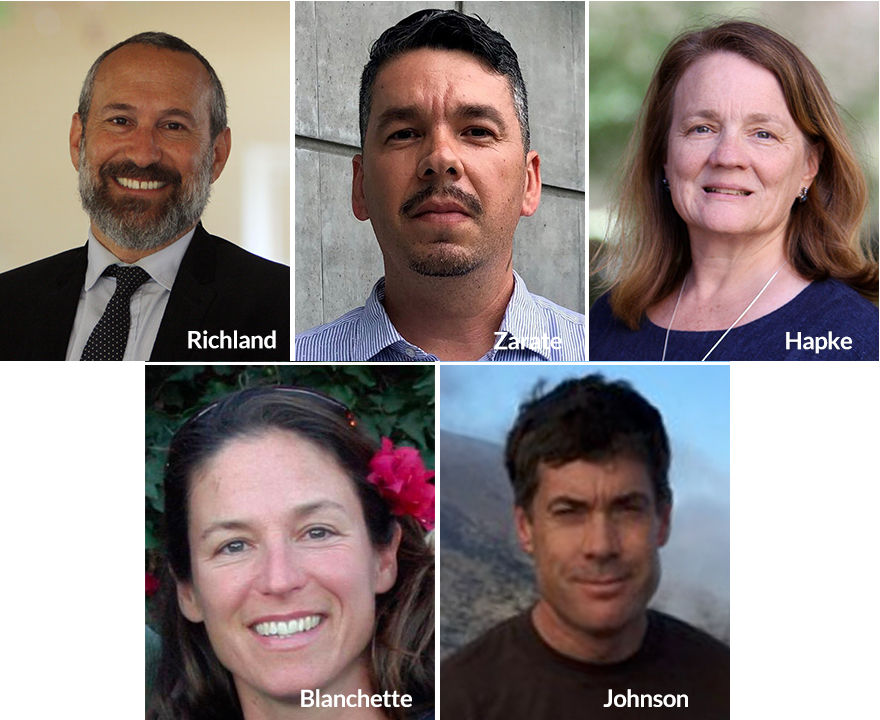Bringing diverse voices, practices to the forefront of wildfire mitigation and research

Bringing diverse voices, practices to the forefront of wildfire mitigation and research
- August 22, 2023
- UCI-led team receives funding from National Science Foundation to connect Indigenous communities with key decision makers in wildfire management
-----
The past two decades have seen an unprecedented increase in the size, frequency, and severity of wildfires. Fueled by climate change, population growth, and past fire suppression policies, wildfires pose an immediate threat to communities directly in their wake while creating long-term health, economic and environmental consequences for millions.
A team of researchers from UC Irvine and UC Santa Barbara has been awarded a $192,869 grant from the National Science Foundation to study wildfire mitigation and management at a regional level, bringing together diverse communities working and living in high-risk areas. Led by Justin Richland, UCI professor and chair of anthropology, the team is particularly focused on bringing Indigenous communities into conversations they have been previously omitted from.
“Many areas at high risk for catastrophic wildfire are also characterized by mixed use, high density forested lands under federal, state, Tribal and private sector control,” says Richland. “Stakeholders in these areas have begun the process of developing wildfire management plans that require partnership across a diverse set of interests and perspectives. Unfortunately, and despite regulatory regimes that mandate state and federal agencies to seek their input, Tribes regularly report being left out of these planning processes.”
In California, home to 110 federally recognized Tribes who reside on 100 reservations, many in areas at severe risk of wildfire threat, fire remains an enduring component of Indigenous landscape management and a tool of Traditional Ecological Knowledge (TEK), he says. But only recently have Indigenous fire practices been recognized as a viable option for agency-led forest restoration projects.
With funding from NSF, Richland and team will lead a series of planning discussions, drafting exercises and site visits with Tribal leaders, Indigenous knowledge keepers, fire science ecologists, government agents and social scientists aimed at developing a proposal for wildland fire research science and management in the Payahuunadü/Owens Valley & Eastern Sierra region of California.
Joining Richland in this work are Salvador Zárate, UCI assistant professor of anthropology, Holly Hapke, UCI director of research development in social sciences, Carol Blanchette, UCSB associate research biologist and director of the Sierra Nevada Aquatic Research Laboratory (SNARL), and Gregory Johnson, UCSB professor of religious studies and director of the Capps Center for the Study of Ethics, Religion, and Public Life. Collectively, they have decades of experience researching and/or living in California’s Eastern Sierra region working with members of Tribal Nations.
“Without opportunities for collaborative deliberation and partnership, the failure to achieve effective cooperation among diverse stakeholders would almost guarantee the failure of efforts before they begin,” says Richland.
Funding for this work begins in September and runs through August 2025.
-Heather Ashbach, UCI Social Sciences
-----
Would you like to get more involved with the social sciences? Email us at communications@socsci.uci.edu to connect.
Share on:
Related News Items
- Careet RightDickson receives grant to apply computational cognitive models to language acquisition
- Careet RightWriting for researchers
- Careet Right8 UC Irvine faculty members named Hellman Fellows for 2023-24
- Careet RightTribes seek more inclusion, action from US officials
- Careet RightCooperation Without Submission


